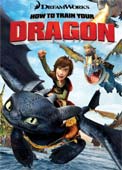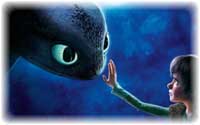En esta parte, analizamos extractos de guiones de películas para entender el uso del inglés cotidiano auténtico. Lee los fragmentos e intenta comprenderlos. Luego, lee la explicación del vocabulario. Finalmente, vuelve a leer el texto.
Recomendaciones para aprender inglés
con películas
1. Elige escenas cortas, retrocede y vuelve a mirarlas para tratar de entenderlas.
2. Desactiva los subtítulos en español. Si aún no logras entender el diálogo, activa la opción "CC" (Closed Caption) en tu televisor para ver los subtítulos en inglés.
3. Intenta mirar películas que conozcas y hayas visto. Dado que ya sabes lo que sucede en la trama, podrás concentrarte en el vocabulario y las expresiones usadas en las conversaciones.
4. Repite las frases que escuchas y si no entiendes algo, utiliza un diccionario.
5. Presta atención a la pronunciación y la entonación. De esta forma, irás entrenando el oído para identificar las palabras, lo cual ciertamente te ayudará a mejorar tu comprensión del inglés.
 HICCUP: My village. In a word, sturdy. And it's been here for seven generations, but every single building is new. We have fishing, hunting and a charming view of the sunsets. The only problems are the pests. You see, most places have mice or mosquitos. We have... dragons.
HICCUP: My village. In a word, sturdy. And it's been here for seven generations, but every single building is new. We have fishing, hunting and a charming view of the sunsets. The only problems are the pests. You see, most places have mice or mosquitos. We have... dragons.Most people would leave. Not us. We're Vikings. We have stubbornness issues. My name's Hiccup. Great name, I know. But it's not the worst. Parents believe a hideous name will frighten off gnomes and trolls. Like our charming Viking demeanor wouldn't do that.
| village | aldea, pueblo |
| sturdy | fuerte, robusto |
| charming | encantador, fascinante |
| sunset | puesta de sol, ocaso. El opuesto es sunrise (salida del sol, alba). |
| pest | plaga, peste |
| you see | Expresión coloquial que equivale al español "como verás", "ya lo ves". |
| mice | Forma plural de mouse (ratón). Otros ejemplos de plural irregular son: foot (pie), feet (pies); person (persona), people (personas); sheep (oveja), sheep (ovejas). Para aprender más, ver Plural. |
| to leave | irse |
| stubornness | testarudez, terquedad. El adjetivo stubborn significa testarudo, terco. |
| issue | En este caso, significa conflicto. |
| the worst | el peor. Para aprender a hacer comparaciones, ver Comparatives and superlatives. |
| hideous | horrible, espantoso |
| to frighten off somebody | espantar a alguien |
| gnome | gnomo, duende (criatura mitológica) |
| troll | trol, duende (criatura mitológica) |
| demeanor | conducta, apariencia. En inglés británico, se escribe demeanour. |
GOBBER: Trolls exist! They steal your socks. But only the left ones. What's with that?
STOICK: When I was a boy...
GOBBER: Oh, here we go...
STOICK: My father told me to bang my head against a rock and I did it. I thought it was crazy, but I didn't question him. And you know what happened?
GOBBER: You got a headache.
STOICK: That rock split in two. It taught me what a Viking could do, Gobber. He could crush mountains, level forests, tame seas! Even as a boy, I knew what I was, what I had to become.
| what he's like | cómo es él |
| to crawl | gatear. Para aprender diferentes formas de caminar, ver Ways of walking. |
| attention span | período de concentración/atención |
| sparrow | gorrión. Para aprender nombres de aves, ver Birds. |
| to steal something | robar algo |
| What's with that? | ¿Qué significa eso? ¿Por qué sucede eso? |
| here we go | aquí vamos. Es una expresión coloquial para mostrar fastidio por lo que la otra persona dice. |
| to bang something | golpear algo |
| against | contra |
| to question somebody | cuestionar a alguien |
| headache | dolor de cabeza |
| to split | partirse, quebrarse. Las formas del pasado son split, split. |
| in two | en dos |
| to teach something to somebody | enseñar algo a alguien. Las formas del pasado son taught, taught. |
| to crush something | moler, pulverizar, aplastar algo |
| to level something | nivelar, alisar, aplanar algo |
| forest | bosque |
| to tame something | amansar, domesticar algo |
| to become something | volverse algo, convertirse en algo |

STOICK: I know. I came looking for you.
HICCUP: You did?
STOICK: You've been keeping secrets.
HICCUP: I have?
STOICK: Just how long did you think you could hide it from me?
HICCUP: I don't know what you're...
STOICK: Nothing happens on this island without me hearing about it.
HICCUP: Oh!
STOICK: So, let's talk about that dragon.
HICCUP: Oh, god! Dad, I'm so sorry. I was going to tell you. I just didn't know how to... You're not... upset?
STOICK: What? I was hoping for this!
HICCUP: Uh... you were?
STOICK: And believe me, it only gets better! Just wait till you spill a Nadder's guts for the first time. And mount your first Gronckle head on a spear. What a feeling!
| You're back | Has vuelto. To be back significa volver. |
| to look for something/somebody | buscar algo/a alguien |
| to keep a secret | mantener un secreto |
| to hide something from somebody | esconder algo de alguien |
| on this island | en esta isla. Notar el uso de la preposición on. |
| to hear about something | escuchar algo. Notar el uso de la preposición about. |
| to talk about something | hablar de algo. Notar el uso de la preposición about. Para aprender diferentes formas de hablar, ver Ways of speaking. |
| I'm so sorry | lo siento mucho |
| to tell somebody something | decir a alguien algo |
| upset | molesto |
| to hope for something | desear algo |
| better | mejor. Para aprender a hacer comparaciones, ver Comparatives and superlatives. |
| till | hasta que |
| to spill something | derramar algo |
| guts | tripas |
| for the first time | por primera vez |
| to mount something | montar algo |
| spear | lanza |
| What a feeling! | ¡Qué sensación! |
- ALADDIN
- GLADIATOR
- NOTTING HILL
- SHREK
- TITANIC
- TOY STORY
Ver todas las películas
The scripts and the images are copyright.
They are used here for educational purposes only.
Otras páginas que pueden interesarte
Por temas, con imágenes y ejemplos de uso.
Listas de Vocabulario
Descubre el origen de las palabras en
The Story behind the Words

Practica inglés leyendo cuentos cortos y sencillos, con el vocabulario traducido. ¡Es fácil y divertido!
Cuentos en inglés
 Practica comprensión auditiva (listening comprehension) con noticias de la actualidad.
Listening
Practica comprensión auditiva (listening comprehension) con noticias de la actualidad.
Listening



